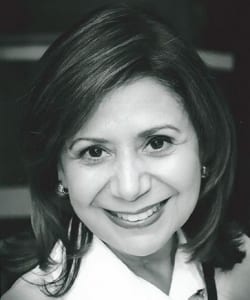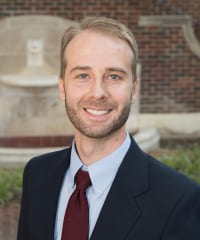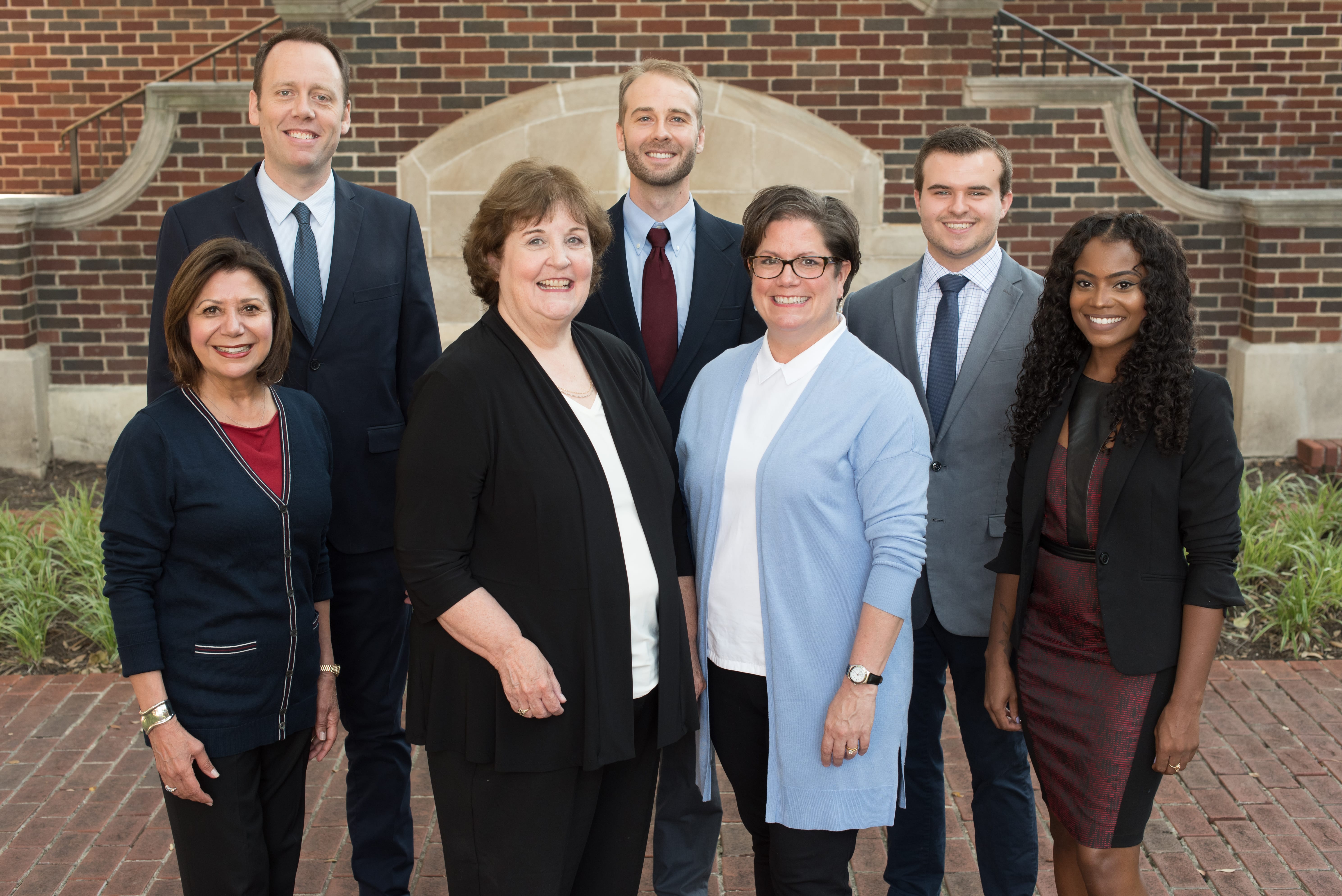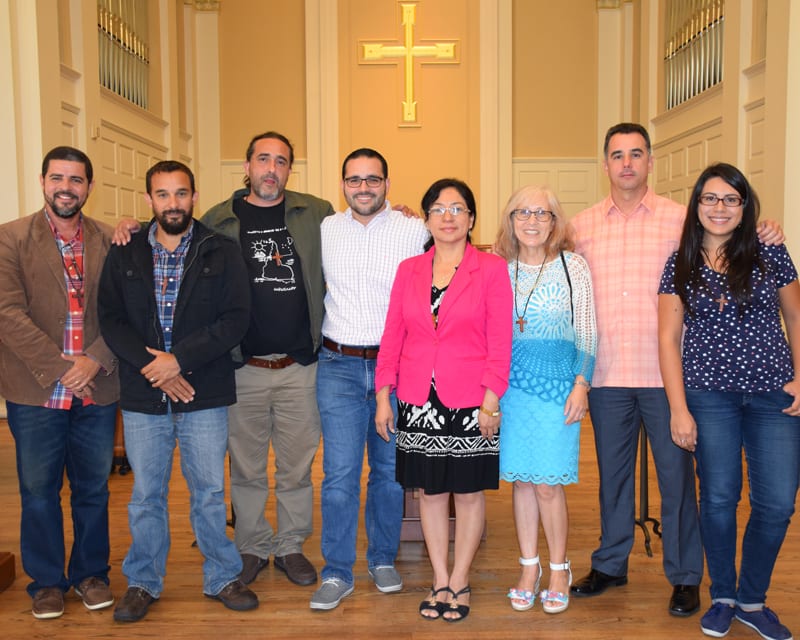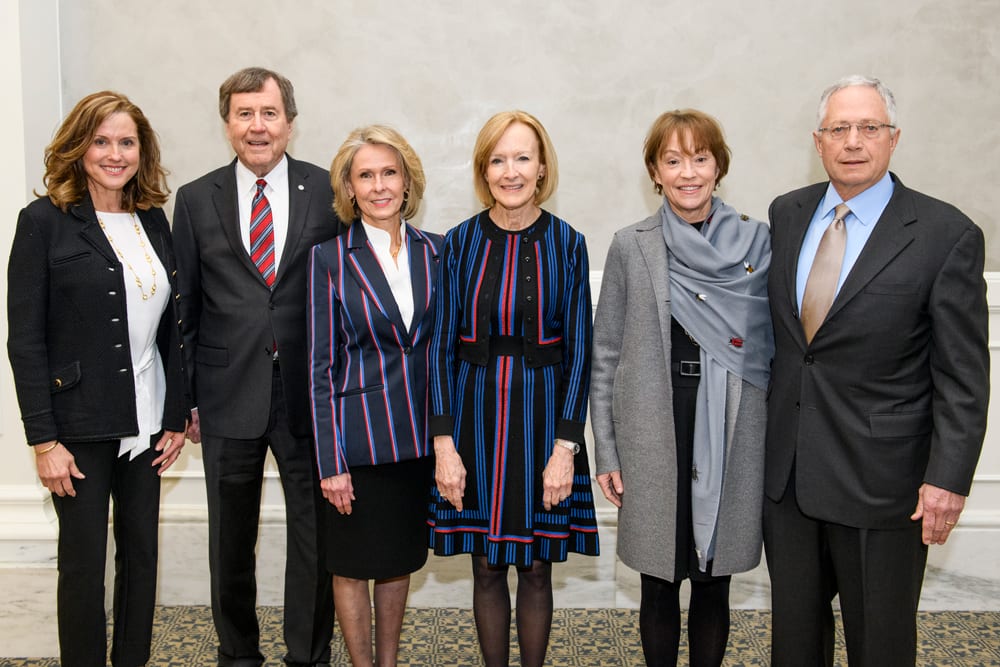Donte A. Ford Wins Award
Donte A. Ford has been chosen as the winner of the 2019 Men’s Ensemble Composer Competition of the Brooklyn Youth Chorus. Ford also recently conducted the premier of his gospel arrangement of “Ride On, King Jesus” with the University of Arizona Symphonic Choir and serves as a guest clinician at St. John Institutional Baptist Church in Phoenix, Arizona. He earned an M.S.M ’16 and an M.Div. ’18 at Perkins, as well as a Master of Music from Meadows in 2017.

Amanda Price
The Rev. Amanda Price (M.Div. ’17) was recently asked to pray with Governor John Bel Edwards, the 56th Governor of Louisiana, and his family at the Governor’s Mansion in Baton Rouge, La. The annual event brought more than 25 pastors from around Louisiana for breakfast, conversation with the Governor’s staff and a time of prayer.
“The governor is Roman Catholic but recognizes the religious diversity of our state and pastors of many different denominations were present,” Price said. “I am honored to have been asked to be a part of supporting our state’s leadership through conversation and prayer.”
Price is currently serving as pastor of Mt. Zion United Methodist Church in Calhoun, La.
Perkins alum joins Boston U School of Theology faculty

Boston University School of Theology announced the new appointment of Filipe Maia (M.T.S. ’11) as a new full-time faculty member, who will begin on July 1, 2019 as Assistant Professor of Theology.
Maia focuses his work in postmodern theology and philosophy, Latin American and Latino/a liberation theologies and philosophy, economic justice, eschatology, postcolonial and decolonial theologies, and Wesleyan studies. He completed his Th.D. at Harvard University in 2017 and has been on the faculty at the Pacific School of Religion. Maia currently works closely with the United Methodist and global Methodist Churches, with local Latinx communities, and with students in the Portuguese Course of Study (UMC).
OBITUARIES
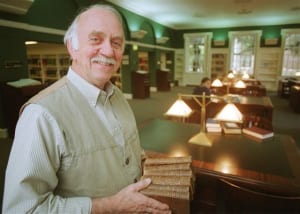
The Rev. Page Thomas
A memorial service was held March 15 at First UMC Plano for the Rev. Page A. Thomas, former Director of the Center for Methodist Studies at Bridwell Library. Thomas served in multiple capacities at Bridwell Library for nearly half a century, including as director of the Center for Methodist Studies. He passed away March 8 near Fairview, Texas, north of Dallas. Thomas was well-known throughout Southern Methodist University for his enthusiasm, energetic charm, professional integrity, and affinity for Western wear. Among American Theological Library Association colleagues, he was regarded by many to be a total librarian and was much admired for his wide-ranging knowledge of Methodist history.
Thomas was licensed to preach in 1956 at the Leslie (Arkansas) Methodist Church. He received a BA in 1958 from Hendrix College, where he served as a student pastor. Thomas was ordained a Deacon (1959) and Elder (1962) in the North Arkansas Annual Conference of the Methodist Church. He earned a BD [M.Div. equivalent] from Perkins School of Theology in 1961. From 1963 to 1965 Thomas preached at Bethel Methodist Church near Greenville, Texas. He held the record for the longest single appointment in the United Methodist Church: 46 years at Bridwell Library.
Thomas began working at Bridwell Library on September 6, 1961, four months after graduating from Perkins School of Theology. His one-year contract turned into a nearly five-decade long career. Originally hired to be the circulation desk supervisor, he moved into other areas of librarianship and administration: cataloging, public services, technical services, curator of exhibitions, collector of archival records, director of the Center for Methodist Studies, and acting library director. His professional interests included Methodist history, historical research, rare book cataloguing, and archaeology. In his free time, Mr. Thomas enjoyed blacksmithing, fishing, raising horses, and volunteering at the Heritage Farmstead in Plano.
To mark his thirtieth work anniversary, Bridwell Library established the Page A. Thomas Collections for the History of the Book in 1991. In 1996, Decherd Turner, the founding director of Bridwell Library, wrote in tribute to Page Thomas: “The best personnel-related event I brought off in my thirty years at Bridwell was hiring you. You became not only my right hand, but my left as well. Much of the best in Bridwell today bears the stamp of your aid.” Page was mentored by Kate Warnick, SMU’s first theological librarian, and worked for five directors: Decherd Turner, Jerry Campbell, Robert Maloy, Valerie Hotchkiss, and Roberta Schaafsma. He retired in 2007.
Harold W. Reynolds
Harold W. Reynolds, 93, long time Tulsa resident died February 27, 2019, in Garland, Texas. He was born April 12, 1925 in Brownsville, TX. After Naval service during WWII, he married Thelma J. Peace on December 23, 1946. A graduate of Southwestern University and Perkins School of Theology, Harold devoted his life to Christian Education Ministry, serving churches in San Antonio, Topeka, Dallas and Tulsa. He served Boston Avenue United Methodist Church for 18 years before retirement in 1991. His strong ties to the church continued until his death.
Thelma, his wife of 55 years, preceded Harold in death. He is survived by his children and spouses, Glenn Reynolds and Karen Havholm, Karen and Steven Carr, and Jim and Jane Reynolds; 6 grandchildren and 5 great-grandchildren. Family and friends will remember Harold for his curiosity, joy in life, beautiful tenor voice and outgoing personality. His interests included music, photography, woodworking, storytelling, gardening, and travel. He valued his service to American Red Cross, Meals on Wheels, and Habitat for Humanity. A memorial service will take place on Thursday, April 4 at Boston Avenue United Methodist Church.
Rachel Escamilla
Rachel Escamilla (M. Div. ’18) died March 10 of complications related to her failing kidneys at her parents’ home. A memorial service was held Saturday, March 30, at Christ United Methodist Church in Farmers Branch. Rachel interned at First United Methodist Church of Plano and was also a current student in Perkins’ Spiritual Certification Program. A simple memorial service in Rachel’s honor will be held during the closing worship for the next weekend session of the Spiritual Directors program, April 26-28, 2019. Cards are welcomed and may be sent to her parents, Soila and Hector Escamilla, 3319 Water Oak Ct., Farmers Branch, TX 75234.
The Rev. Edward Blythe
The Rev. Edward Cary Blythe (M. Th. ‘60), a retired clergymen who was a member of the Little Rock Conference at retirement but served some churches in the North Texas Conference, passed away Sunday, February 24, at age 87. While in the North Texas Conference, Rev. Blythe served at First UMC, Sherman; First UMC, Paris; First UMC Irving; and First UMC Wichita Falls. He is survived by his wife Marion Blythe. For those wishing to send cards and letters of condolence, send them to: Marion Blythe, 1894 S. Patrick Drive, Indian Harbor Beach, FL 32937.




